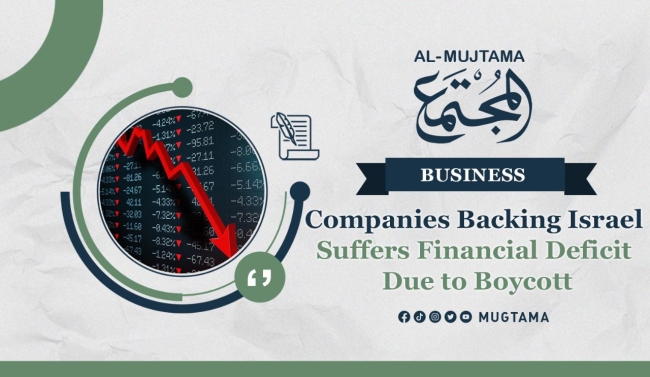Companies Backing Israel Suffers Financial Deficit Due to Boycott Featured
The Boycott's Effect on Company Finances
The boycott against companies supporting Israel in the aftermath of the Gaza Strip war has had significant financial consequences. Many international companies targeted by the boycott are experiencing a decline in their financial conditions.
McDonald's: A Major Victim
One of the companies hit hard by the global boycott is McDonald's, the American fast food giant. Although they saw a nominal increase in revenue of 8 percent to $6.41 billion in the fourth quarter of 2023, it fell short of market expectations set at $6.45 billion. McDonald's attributed this setback to a slow 0.7% increase in sales in its International Development Markets division, which mainly covers the Middle East, China, and India. The company aimed for a 5.5% increase in this division between December and January. McDonald's CEO, Chris Kempczinski, acknowledged the decline in sales in Muslim-majority countries, including the Middle East, Malaysia, and Indonesia, but hopes for a recovery after the conflict in Gaza stops. It's worth noting that McDonald's Turkey took a different stance by pledging $1 million in humanitarian aid to support war victims in Gaza, especially women, children, and the elderly.
Starbucks: Feeling the Impact
The famous American coffee chain Starbucks also felt the repercussions of the boycott, particularly in the Middle East. CEO Laxman Narasimhan mentioned weak sales and decreased traffic at their cafes in the United States due to the boycott. Despite an 8 percent increase in revenue to $9.4 billion in the last quarter of 2023, Starbucks did not meet expectations. The market prompted the company to revise its annual sales growth goals downward by about 4-6 percent.
Dominos Pizza: Sales Decline
Dominos Pizza, another American giant, faced the boycott directly, especially in Asia, where store sales fell by 8.9 percent in the second half of last year. The company received major backlash on social media after pictures circulated showing them distributing free meals to Israeli soldiers. Donald Jeffrey Meig, the company's general manager, acknowledged the boycott's impact on sales in Asia.
KFC and Pizza Hut: Feeling the Effects
Yum, the parent company of KFC, Pizza Hut, and Taco Bell, also experienced lower-than-expected revenues in the fourth quarter of 2023. With total revenues reaching $2.04 billion, an increase of 1 percent year over year, it fell short of market expectations set at $2.1 billion. KFC and Pizza Hut sales in the Middle East witnessed a decline during the last quarter of 2023, with KFC's sales falling by 5 percent and Pizza Hut's by 3 percent. Yum's CEO, David Gibbs, attributed the sales decline to ongoing conflicts in the Middle East.
The Ongoing Impact
The effects of the boycott are evident across various global companies, and their financial situations continue to unravel. The international community is closely watching these companies as they navigate the complexities of geopolitical tensions amid the ongoing war in the Middle East.
Source: Anadolu Agency


